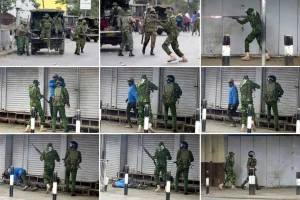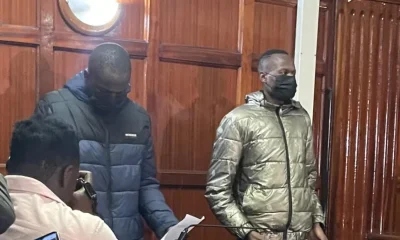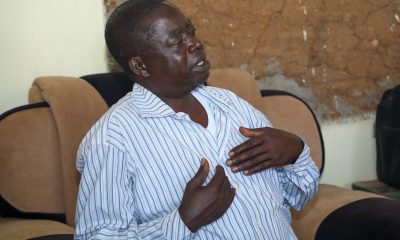News
Lawyer Representing Police Officers Who Shot Mask Hawker Withdraws Citing Online Threats
Kariuki was shot in the head at close range while selling face masks near Imenti House on Moi Avenue.
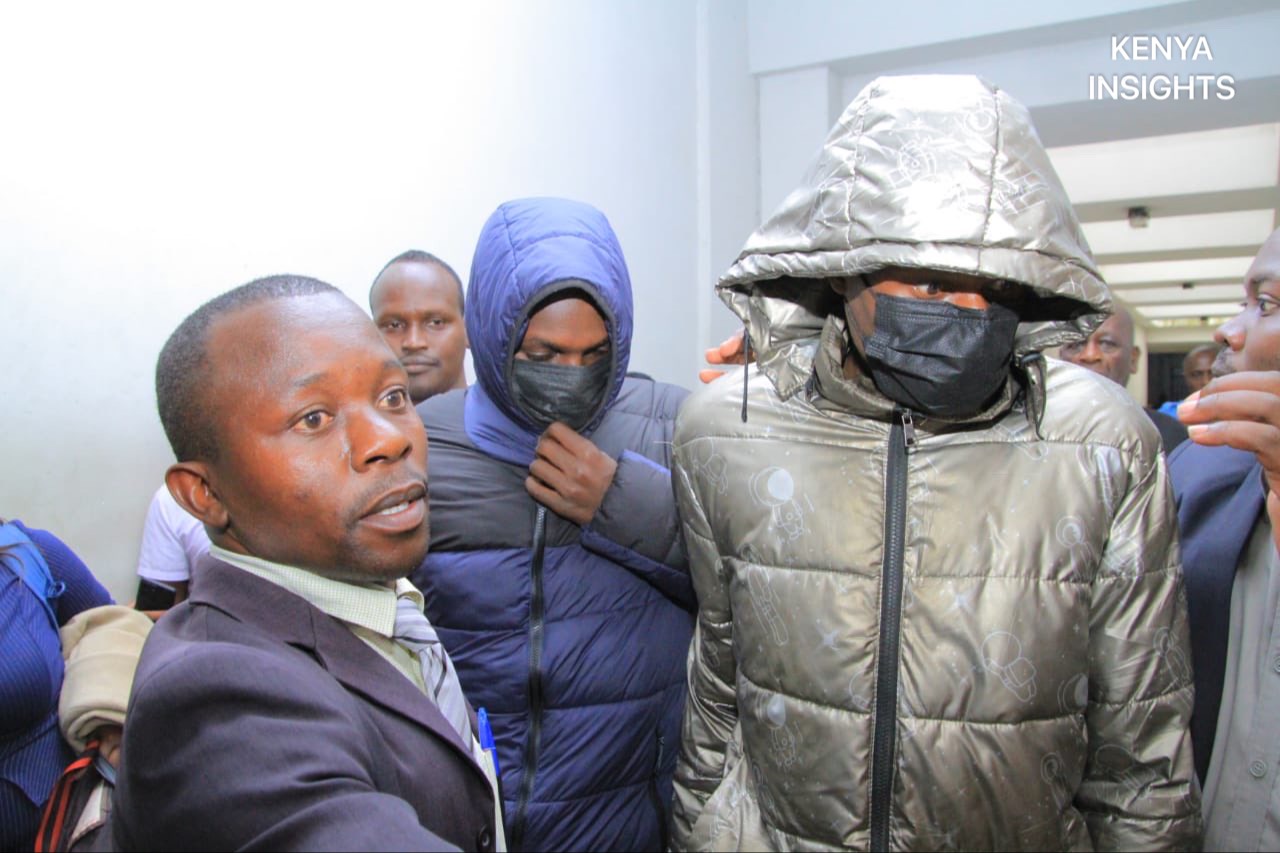
NAIROBI, Kenya – A prominent Nairobi lawyer has withdrawn from representing two police officers accused of shooting an unarmed street vendor, citing an overwhelming wave of threats allegedly orchestrated by Kenya’s digitally-mobilized youth movement known as “Gen Z.”
Felix Keaton, who was defending Police Constables Klinzy Barasa Masinde and Duncan Kiprono, announced his decision Wednesday morning, just hours before the officers were scheduled to appear in court for their arraignment at Milimani Law Courts.
The case centers around the brutal shooting of Boniface Kariuki, a 32-year-old mask vendor, during anti-police brutality protests in Nairobi’s Central Business District on June 17.
Kariuki was shot in the head at close range while selling face masks near Imenti House on Moi Avenue.
Video footage of the incident, which quickly went viral across social media platforms, shows Kariuki raising his hands in apparent surrender before being shot by one of the officers.
The hawker collapsed to the ground while still clutching the packet of face masks he was selling.
Kariuki survived the shooting but underwent emergency surgery to remove what medical officials described as a rubber bullet from his skull. He remains in critical condition in the Intensive Care Unit at Kenyatta National Hospital, according to hospital spokesperson William Sigilai.
Keaton revealed that he had received more than 1,000 threatening calls and messages demanding he abandon the case.
The threats extended beyond himself to include his family members, prompting his decision to step down.
“In the interest of my personal safety and that of my family, I have taken the painful but necessary decision to cease all legal representation in this matter,” Keaton stated in his withdrawal notice.
The lawyer’s decision highlights the intense public pressure surrounding the case, which has become emblematic of Kenya’s ongoing struggle with police accountability and the growing influence of youth-led digital activism.
Officers Appear in Court
Despite their lawyer’s withdrawal, both Masinde and Kiprono were brought to Milimani Law Courts on Thursday morning aboard a Toyota Premio. The officers, dressed in black trousers, heavy coats, and face masks, were held in court cells ahead of their appearance.
The National Police Service had previously interdicted both officers following Inspector General Douglas Kanja’s order for their immediate arrest. They have been processed by the Homicide Team at the Directorate of Criminal Investigations headquarters as investigations continue.
The shooting occurred during protests sparked by the death of blogger Albert Ojwang while in police custody, adding another layer to Kenya’s escalating tensions between law enforcement and civil society activists.
The demonstrations were part of broader calls for police reform and accountability that have gained momentum among Kenya’s youth.
Witness Edwin Kagia, a fellow hawker who was present during the incident, provided a chilling account: “We were selling masks near Imenti House when the police fired tear gas. One officer slapped Boniface, and as he raised his hands in surrender, he shot him.”
The incident has drawn condemnation from civil rights groups, political leaders, and former Chief Justice David Maraga, who described the shooting as “cold and inhuman.”
The International Commission of Jurists Kenya has demanded an independent probe into the shooting.
Kenyatta National Hospital confirmed it treated 16 casualties from the Tuesday protests, with Kariuki’s case being the most severe.
Digital activism
Keaton’s withdrawal underscores the power of Kenya’s Gen Z movement, which has increasingly used digital platforms to mobilize public opinion and pressure authorities.
The movement gained international attention during last year’s anti-tax protests, which resulted in significant casualties and forced the government to withdraw controversial tax proposals.
The case has also raised questions about the right to legal representation versus public accountability, as the intense online pressure may complicate the officers’ ability to secure adequate defense counsel.
With their original lawyer having withdrawn, Masinde and Kiprono will need to secure new legal representation as their case proceeds through the courts.
The prosecution is expected to face scrutiny over the handling of what has become one of the most closely watched police brutality cases in recent Kenyan history.
The incident continues to fuel broader debates about police reform, with activists calling for civilian oversight of law enforcement and an end to the culture of impunity that they argue protects officers who abuse their power.
As Kariuki fights for his life in the hospital, his case has become a symbol of the ongoing struggle between Kenya’s security forces and a generation of young activists demanding change through digital organizing and street protests.
Kenya Insights allows guest blogging, if you want to be published on Kenya’s most authoritative and accurate blog, have an expose, news TIPS, story angles, human interest stories, drop us an email on [email protected] or via Telegram
-

 Business2 weeks ago
Business2 weeks agobetPawa Empire Crumbles: Mr Eazi’s Betting Gambit Unravels Amid Partner’s Shadowy Deals
-

 Business1 week ago
Business1 week agoMinnesota Fraud, Rice Saga, Medical Equipment Deal: Why BBS Mall Owner Abdiweli Hassan is Becoming The Face of Controversial Somali Businessman in Nairobi
-

 News1 week ago
News1 week agoDCI Probes Meridian Equator Hospital After Botched Procedure That Killed a Lawyer
-

 Politics1 week ago
Politics1 week agoYour Excellency! How Ida’s New Job Title From Ruto’s Envoy Job Is Likely to Impact Luo Politics Post Raila
-

 Investigations2 weeks ago
Investigations2 weeks agoEXPOSED: SHA Officials Approve Higher Payments for Family, Friends as Poor Patients Pay Out of Pocket
-

 News1 week ago
News1 week agoKenya Stares At Health Catastrophe As US Abandons WHO, Threatens Billions In Disease Fighting Programmes
-
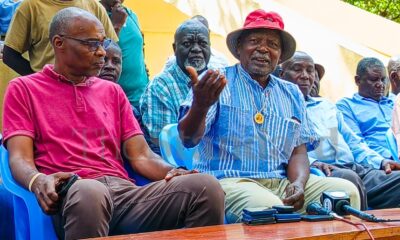
 Politics2 weeks ago
Politics2 weeks agoJaramogi Clan Tells Raila Jr, Winnie Against Disrespecting Their Uncle Oburu, Warns of Curses
-

 Business2 weeks ago
Business2 weeks agoKRA Boss Humphrey Watanga In Big Trouble In Sh5.5 Billion Rice Import Scandal

